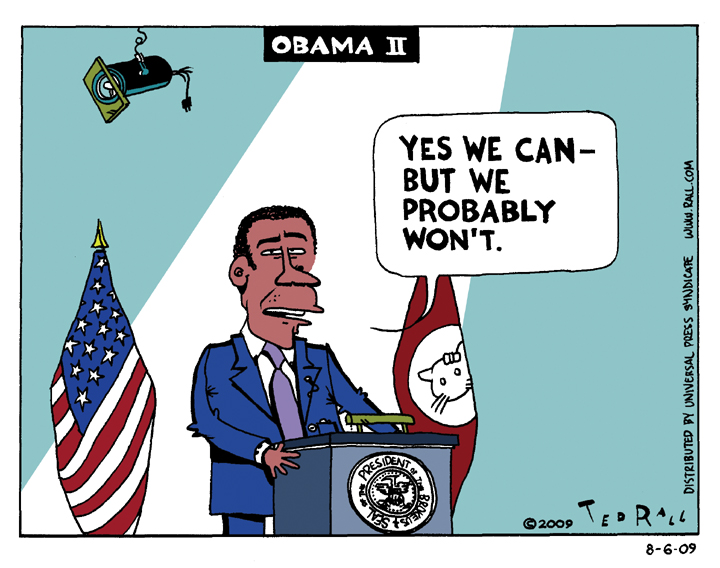For as long as anyone can remember, the United States government has wallowed in fear mongering. Now there’s actually a real legitimate threat to the national health, and many people, especially the young, aren’t listening to warnings.
SYNDICATED COLUMN: Being, Nothingness and Anthony Weiner
Should Anthony Weiner Resign?
Should Anthony Weiner resign?
Aside from the obvious pleasure that we derive from wallowing in salacious revelations about the rich and powerful, this week’s Weiner sexting controversy provides a window into American morals. Namely: what is wrong, what is right, and what if anything should be done about it?
Let’s look at the sin first.
Weiner sent smutty photos, some with smutty captions, to some of his followers on Twitter. As far as we know he never met any of these women in person, much less had sex with them.
After the Congressman and once-possible-future mayor of the City of New York realized that he had mistakenly sent one of his crotch shots to the wrong addressee, he got too clever by half. Trying to get ahead of the story before it broke organically, he called a press conference and claimed that Evil Right Wingers had hacked his Twitter account. This lame story quickly fell apart, and here we are, with The New York Times editorial board officially decrying Weiner’s “profoundly squalid and offensive pattern of conduct,” language one would have liked to have seen used to describe, for example, torture. Or the bailouts for millionaire bank executives. Or lying us into war in Afghanistan. And Iraq. And Libya.
No victim, no sin. Who’s Weiner’s victim?
Not, apparently, the women to whom he tweeted his…tweet. As far as we know, they were willing adult participants.
Weiner’s wife Huma Abedin is the sole candidate for Victim.
You have the right to feel outraged on her behalf. Me, I’m wary. No one but a husband and wife (or two husbands or wives) knows what goes on between them.
For all we know, Huma might be evil. She may have done far worse. Maybe she doesn’t mind. Or thinks a guy is entitled to fantasies that don’t involve his wife. If she sticks around we’ll at least know that her hubby’s “profoundly squalid and offensive pattern of conduct” wasn’t worth divorce.
The way I see it, this is the Weiners’ business.
To ask whether Weiner should resign, then, goes to another question. Did he betray his constituents–those in Queens and, more broadly as a nationally-known Congressman, the American people?
No doubt, Weiner lied to we, the people. It’s hard to imagine now, but that used to be an impeachable offense. Dig up Richard Nixon and ask him.
Nowadays, however, the public seems to have abandoned the expectation that politicians tell the truth. President Obama, for example, included a clear call for a public option in his healthcare reform proposal during the 2008 presidential campaign. It’s still on his website. And yet: “I didn’t campaign on the public option,” he said in late 2009.
Weiner lied. But it wasn’t about policy or something important like war. Remember Libya? We were going to “move quickly to save [civilian] lives.” It was going to be “this limited action, limited both in time and scope.” That was March. Now we’re trying to kill Kadaffi.
And, to Weiner’s credit, he didn’t lie long. A week. When he ‘fessed up, he did it like a man: took questions from the press, accepted responsibility, volunteered dirty deeds we didn’t know about.
It’s certainly not “we DID find the WMDs,” à la Bush-Cheney. Who, remember, did not resign.
I would love to live in a country in which lying to the public was cause for resignation. It sure would make for a lot of vacancies in government.
But we don’t–and it seems weird to hold a sexter to a higher standard than a warmongering mass murderer.
Ultimately the public’s case against Weiner comes down to the one Edward G. Robinson snaps at the dastardly insurance salesman played by Fred MacMurray in “Double Indemnity”: “I picked you for the job, not because I think you’re so darn smart, but because I thought maybe you were a shade less dumb than the rest of the outfit. I guess I was all wet. You’re not smarter, Walter. You’re just a little taller.”
Weiner doesn’t even get to be tall.
The Times questioned Weiner’s “judgment and character, considering that he was once considered one of the savvier members of the House. Had it not occurred to him, in an era of unending sexual scandal, that repeatedly sending these kinds of photographs to strangers would eventually catch up with him? And that, if it did, his attempt to exploit his political celebrity for online sexual gratification would be considered reprehensible?”
Should Weiner resign? Only if not being sufficiently cold, cynical and calculating is just cause.
(Ted Rall is the author of “The Anti-American Manifesto.” His website is tedrall.com.)
COPYRIGHT 2011 TED RALL
SYNDICATED COLUMN: How Obama Helps Murder Our Inner Child
Blame Politicians’ Lies, Not Apathy
I can’t stop thinking about what Obama said about Christina-Taylor Green, the nine-year-old girl shot to death in Tucson.
Christina-Taylor, said the president, saw politics “through the eyes of a child, undimmed by the cynicism or vitriol that we adults all too often take for granted.”
Those are disturbing words. But not the way Obama intended.
Obama relies on a deeply flawed assumption: that becoming cynical is an inherent part of growing up.
That’s a lie. As American citizens travel the long road from childhood to adulthood to valued members of the AARP, their political system repeatedly lets them down. Cynicism is taught. Optimism is ruthlessly crushed.
People vote for politicians who break their promises. Disappointed by the limited choices offered by the two major parties, they pick one only to see it repeatedly sell out its purported principles. As year after year slips by they watch the problems they worry about go completely unaddressed, much less solved, by their so-called representatives.
On those rare occasions that “their” government impacts their lives, it does so negatively, with taxes, fines, paperwork, parking tickets. Meanwhile the pols fatten themselves and their cronies at the public trough (before moving on to the even richer private one).
Say you have an absentee parent who drinks up the grocery money and beats you up. To protect yourself you develop a bit of a shell. Who can blame you? When you finally stop talking to the deadbeat SOB, is it fair to call you cynical?
Hardly. You’re merely acknowledging reality. You’d be a fool not to.
In researching this column I found countless articles and studies that try to explain why the United States has one of the lowest voter turnout rates on earth. Almost all suggested ways to get more Americans to the polls. None focused on the supply side of the equation: improving politicians and politics so they become more appealing to the electorate.
Ask not, Mr. President, what Americans can do to become less cynical, but rather ask what you and your pals in D.C. can do to deserve our trust.
It’s interesting to ask why many Americans are registered to vote but rarely cast a ballot. (Usually whether or not a person is registered is the best predictor as to whether or not they actually vote.) A 2006 Pew Research survey found that 42 percent of these individuals were “bored by what goes on in Washington,” 14 percent were “angry at the government,” 32 percent said “issues in D.C. don’t affect me,” and 30 percent said “voting doesn’t change things.”
These people aren’t stupid or lazy. They’re cynical, and rightly so. They think the government is evil, irrelevant, or both. Lords knows politicians give them lots of reasons to hold those beliefs.
Start, for example, with President Obama himself.
In a September 2010 interview with Rolling Stone Obama claimed to have “accomplished 70 percent of the things that we said we were going to do—and by the way, I’ve got two years left to finish the rest of the list, at minimum.”
These politicians! Even in a line about keeping promises, the dude fudges facts. “Minimum”? You can’t assume a second term when you’re president. Moreover, no one who voted for Obama in 2008 wants to wait until 2016 to see the fulfillment of a 2008 promise.
Anyway, Obama has kept a mere 24 percent of his 2008 promises. That’s according to Politifact—and their assessment is generous.
Totally broken promises—promises Obama didn’t even pretend to try to keep—include the following:
He said he would close Guantánamo concentration camp.
He said he would pull U.S. troops out of Iraq.
He said he would create a $10 billion foreclosure prevention fund.
He said he would let the Bush tax cuts expire.
He said he would eliminate warrantless wiretaps.
He said he would eliminate extraordinary renditions.
He said he would eliminate torture.
He said he would create a transparent online database related to government ethics and lobbying activities.
He said he would close the revolving door between government and private sector lobbying.
He said he would create a national publicly funded healthcare system.
So many broken promises. No wonder so many optimistic kids turn into hardboiled adults.
Politicians lie and lie and lie. Then, when we notice, they accuse us of being faithless. Us! What about them?
“I want our democracy to be as good as Christina imagined it,” Obama said. “All of us—we should do everything we can to make sure this country lives up to our children’s expectations.”
No, Mr. Obama. “All of us” don’t have to do jack. It’s not our job to take an interest in politicians. It’s the politicians’ job to take an interest in us.
(Ted Rall is the author of “The Anti-American Manifesto.” His website is tedrall.com.)
COPYRIGHT 2011 TED RALL


